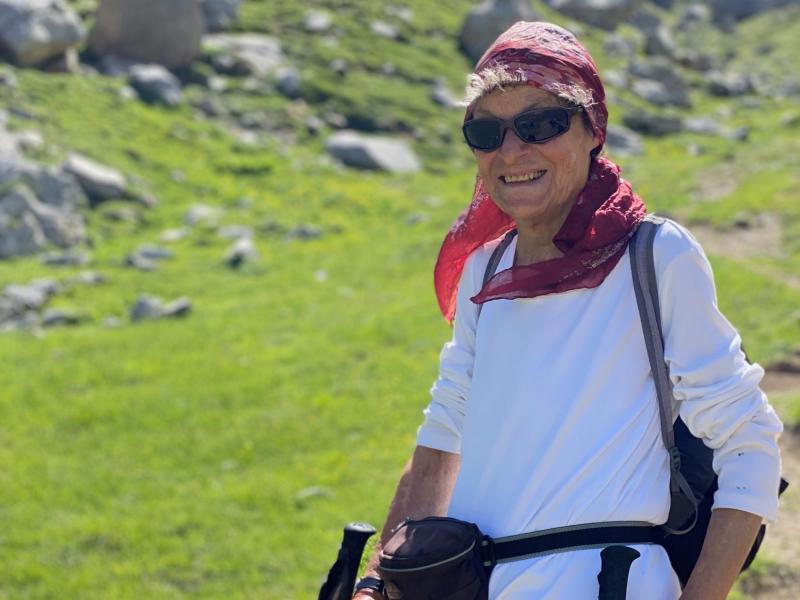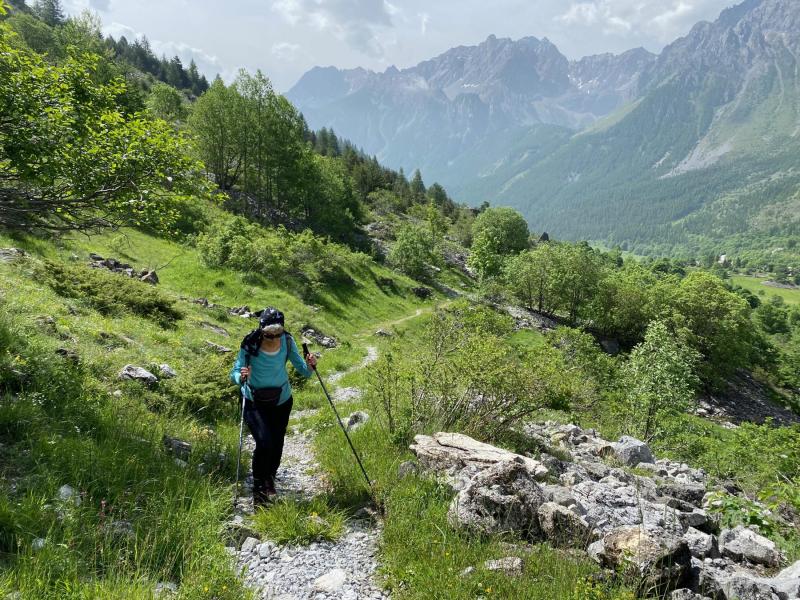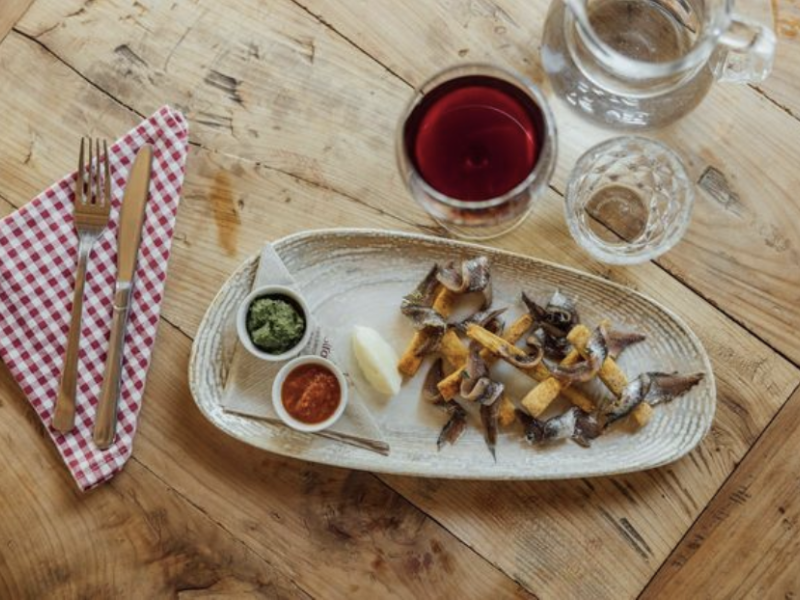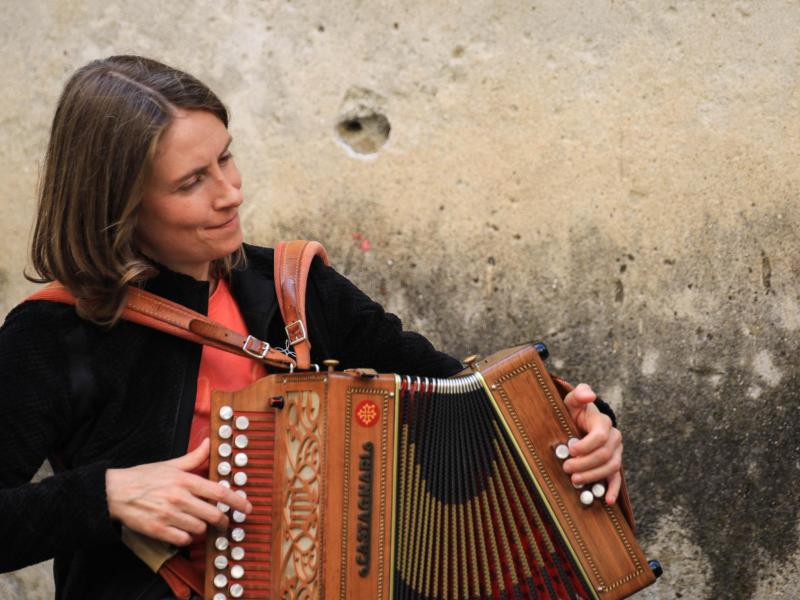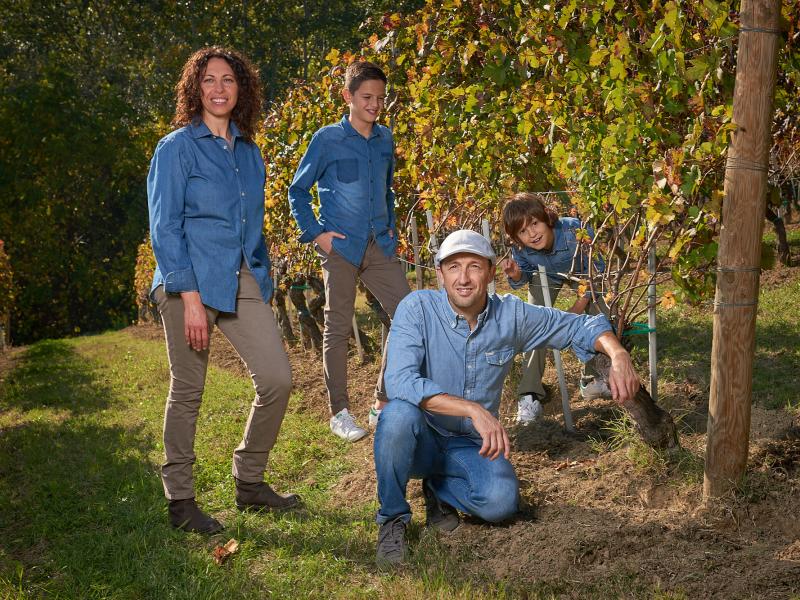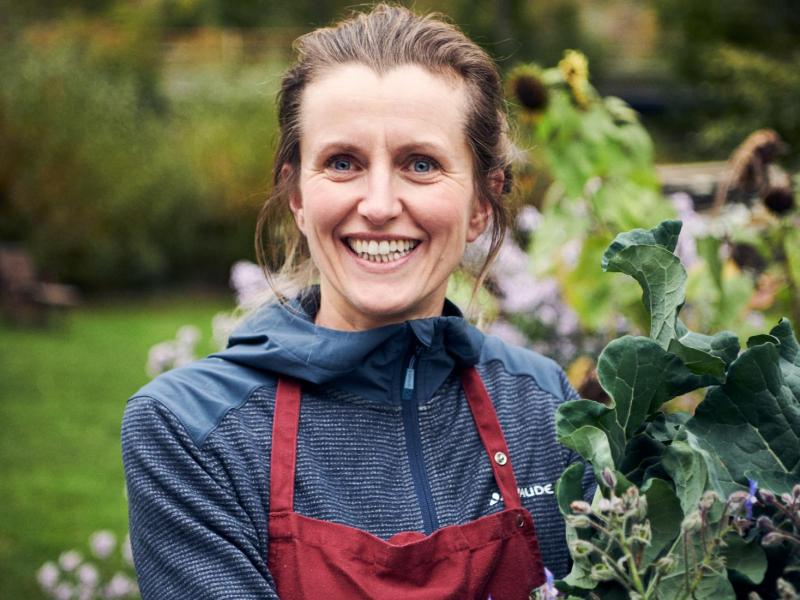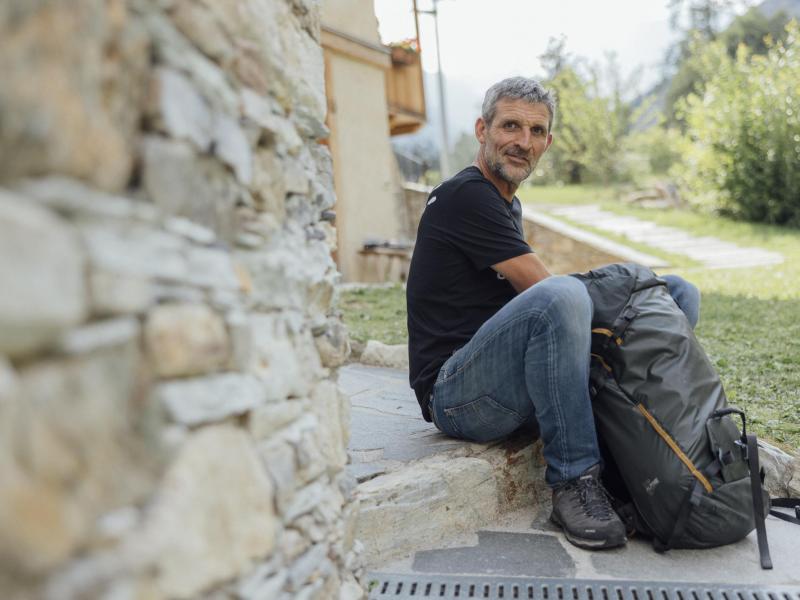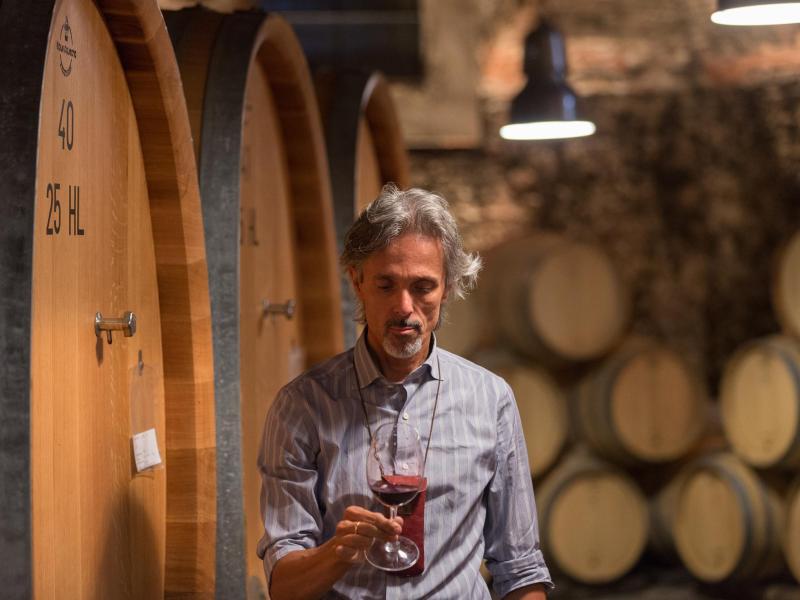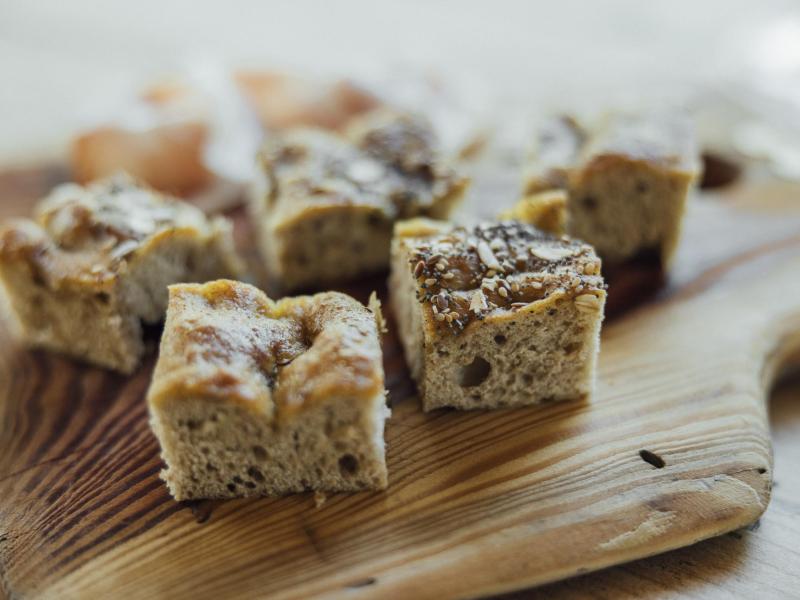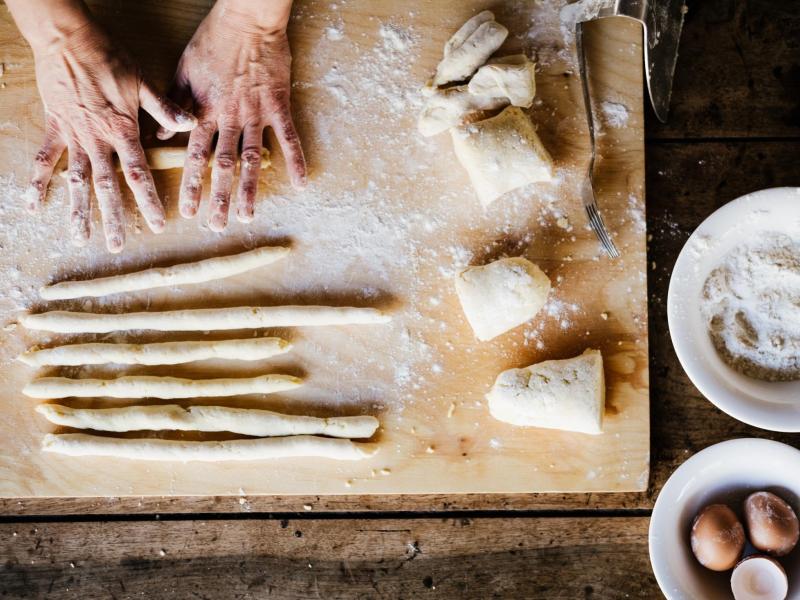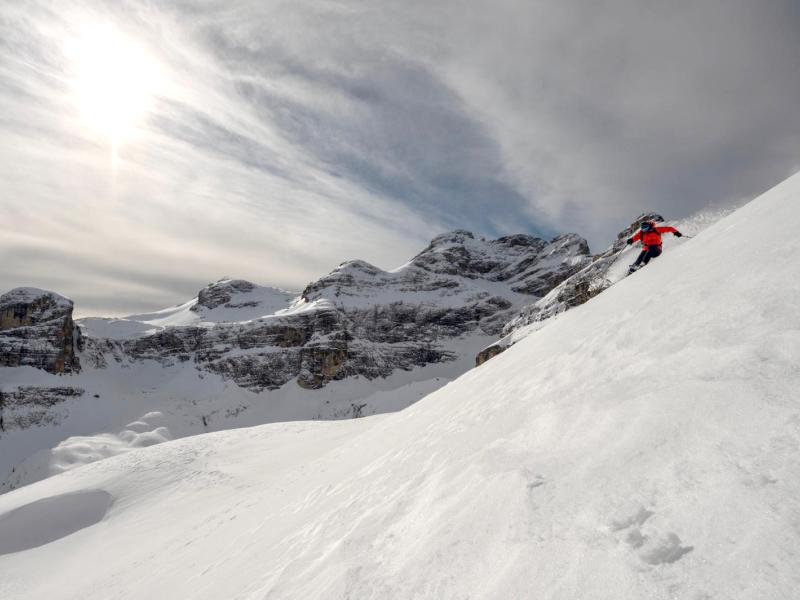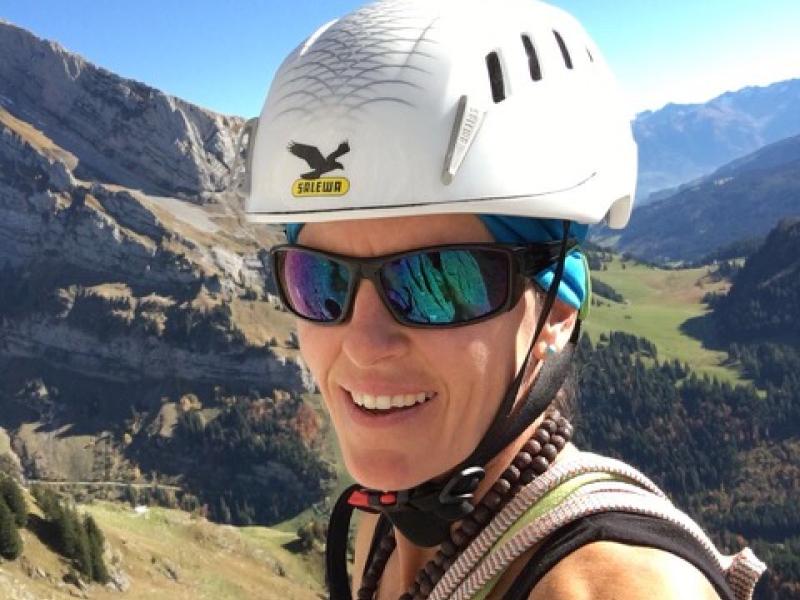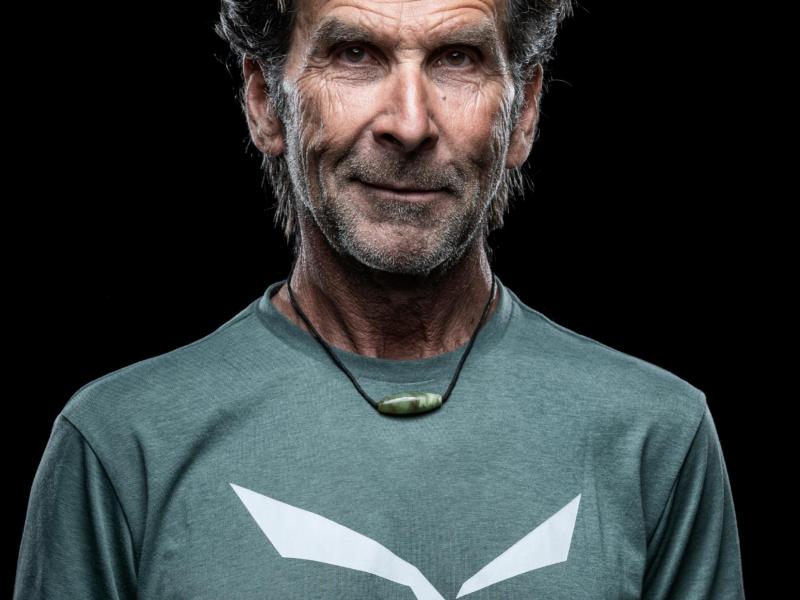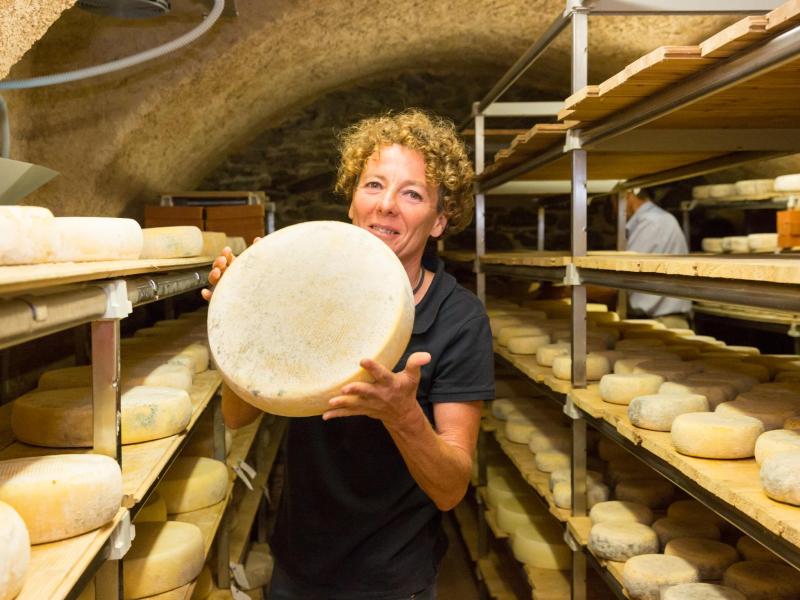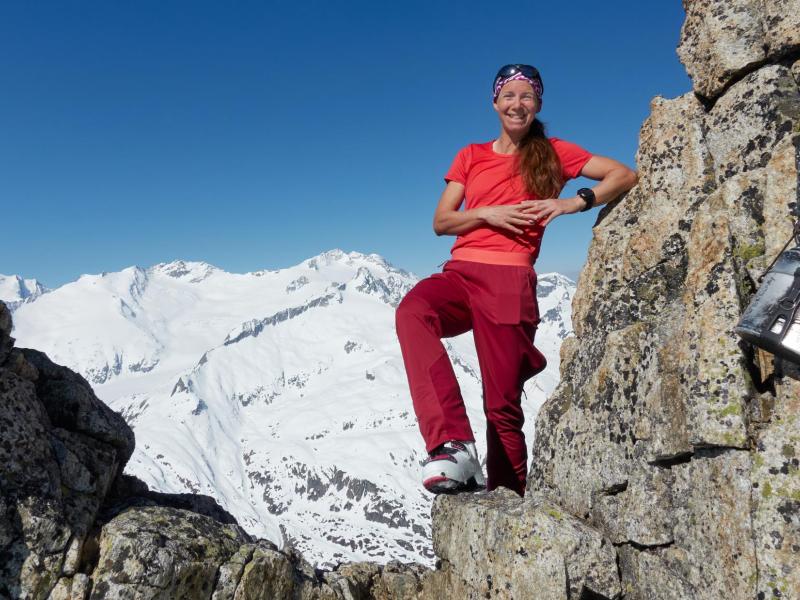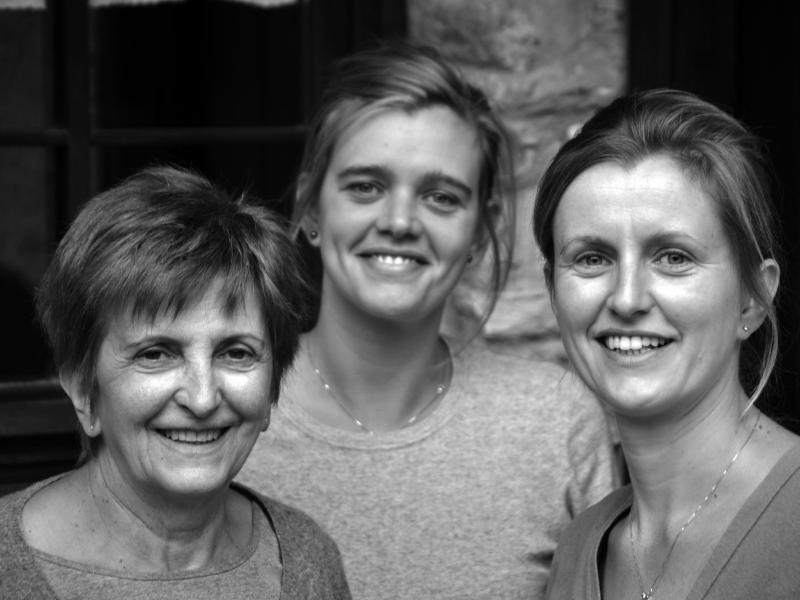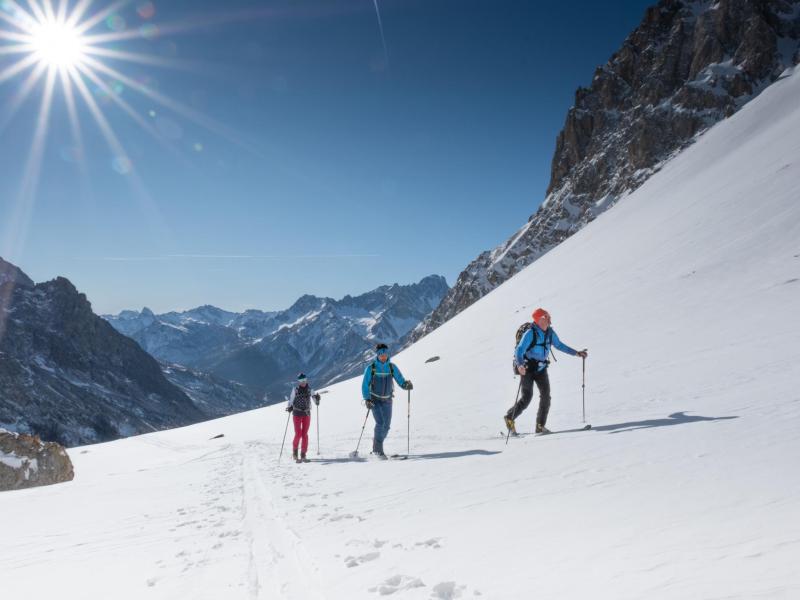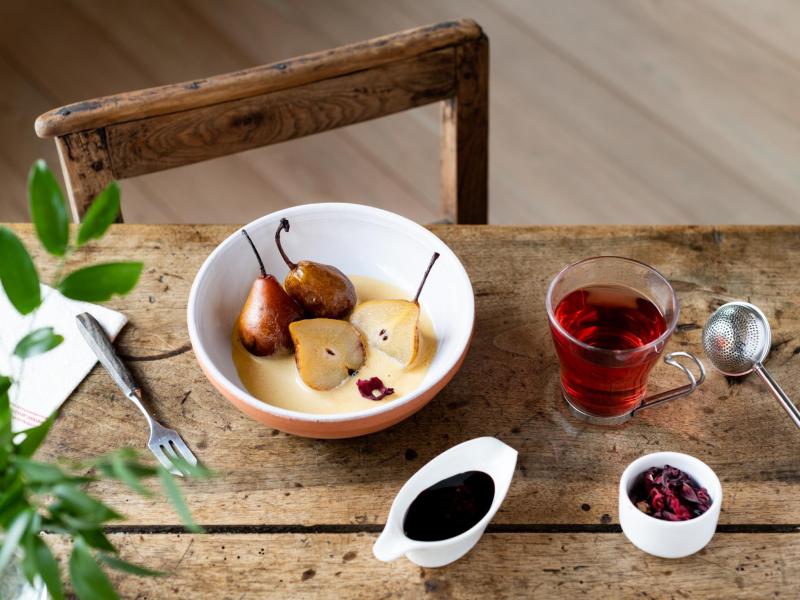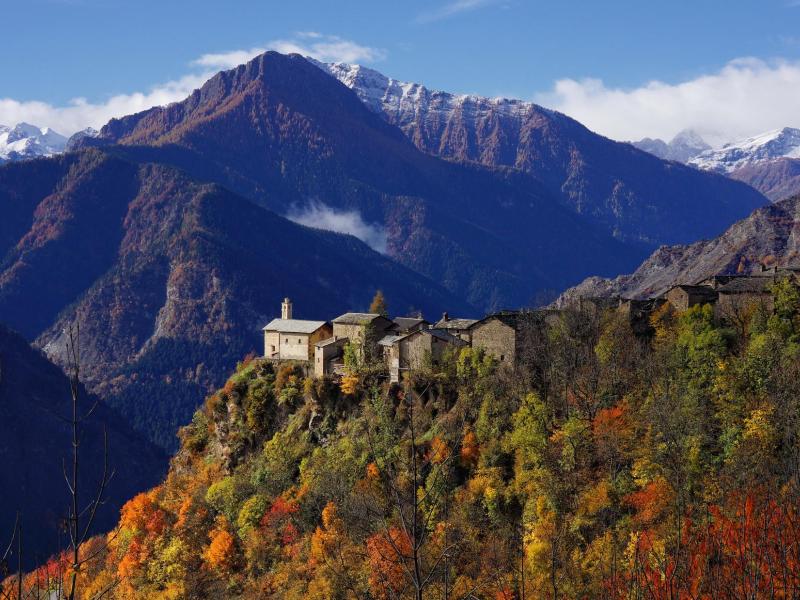Dear Ursula, we are very pleased to welcome you as a guest at the Locanda Mistral and to be able to have this conversation with you. Could you tell our readers a little more about yourself?
I grew up in Solothurn, a small town in the Swiss Mittelland, in a family of teachers. In the summer holidays we went to the mountains, that probably shaped me. I have lived in Zurich for 50 years. I love city life, especially when you're so close to the mountains. As a librarian and media documenter, reading was my job. Writing didn't start until I was 45, when I and my husband, Jürg Frischknecht, started to write hiking guides.
The hiking guide "Antipasti and old paths" is one of the best-known books about the Valle Maira. How did it come about? Or when and how did you first hear about our hidden alpine valley?
In the 1980s, Werner Bätzing published his guide to the GTA, the Grande Traversata delle Alpi. That was like a door opener to an area in Italy that was hardly known to us in the north. With this background, Transalpedes, an international group of environmental activists, Alpine politicians and journalists, hiked from Vienna to Nice in three months in 1992, visiting action groups and projects dealing with life and survival in the Alps. Jürg was part of the group, from time to time I hiked with him for a few days. That's how I came to Valle Maira for the first time.
You were in Valle Maira for the first time in 1992. What surprised you the most back then? Can you still remember your first impressions?
The first visit was short and foggy. But it was enough; the harsh charm of the valley captured us. And the idea of the Percorsi Occitani (the name alone - a hit), the attempt to stop massive migration with gentle hiking tourism, we found great and very courageous. The enthusiasm for the cause could also be felt in the people who ran the Posti tappa, and, I like to say it again and again, the women played a central role. Because they knew that last but not least, love goes through the stomach. Their creative multi-courses, shaped by tradition and by the Piedmont of the Langhe, were a celebration that we always looked forward to the whole day of hiking. In short, a hiker's paradise of the top class, which has hardly been noticed for a long time, despite all the noise from us and our friends.
And what surprises you today? In your observation, how has the valley changed?
The Valle Maira has a unique success story. The Percorsi Occitani, the hiker's highway of yore, has now almost disappeared in the dense network of new hiking trails and trendy bike trails. The number of guest establishments has more than doubled. Marketing is written in contemporary capital letters. After sifting through all the offerings, a seaside retreat is needed for all those who work on the Valle Maira brand.
You not only followed the development of the Percorsi Occitani, you also helped shape it. Could you give us an insight into their creation? And share your thoughts on where they stand now, and if a possible further development of this project will happen?
The Percorsi Occitani were born out of necessity. The emigration from the alpine valley of Piedmont was serious. It was a happy coincidence that Ermanno Bressy from the Communità Montana, Matteo Laugero, one of the few returnees, and Andrea Schneider, an immigrant from Vorarlberg, came together with his German wife Maria, and set up the Percorsi Occitani project.
As I said, it was the perfect hiking dream, for head, stomach and feet. Andrea and Maria Schneider in San Martino were good friends and thus our information exchange, one that didn't withhold gossip and tittle-tattle from us. They watched us happily roaming around for a few years, then coaxed us into getting a little pamphlet. It turned out to be quite a big book. More of a reading book than a hiking guide, under the motto: "When the heart is full, the mouth speaks". But it served its purpose. Our enthusiasm finally jumped over. The number of visitors from German-speaking countries then doubled almost every year. No wonder when you start almost from scratch!
The valley has of course changed with the success, it is no longer just the quiet mountain hikers on the move. But compared to the developments we see elsewhere in the Alps, the balance between sustainable management and optimization of success is still okay. Of course, it would be nice if the PO were to position itself more strongly as an independent brand among all the many offers, since they are the common thread that started it all. Back to the roots? How and to what roots? That is the question. I myself now belong to the demanding breed of hikers who, in addition to well-marked hiking routes, appreciate a comfortable room, a warm shower, a beautifully-set table and a decent selection of wines, or to put it more bluntly: require it.
The fact that the valley is stagnating in terms of the number of residents who live there all year round cannot be hidden behind the seasonal activity. Valle Maira is not alone in this. We also have villages that are hollow behind a nice, pretty facade. No shop, no post office, no school, no bar where you can meet at the regulars' table for a beer. The escape from the city, back to the home valley, has not (yet) taken place.
At the Locanda Mistral, we are committed to sustainable action. We are therefore pleased that the topic of sustainability is receiving increasing attention. We know that you are also working intensively on this topic and would be delighted if you could share your impressions and thoughts with us.
Today, sustainability is more than just a trendy word in tourism, both on this side and on the other side of the Alps. Most of the guests who come to you are (I assume) well-informed and appreciate knowing where the breakfast egg, the bread, the cheese, salad and vegetables, meat and sausage, the timber, the energy come from. Personally, to put it bluntly, I'm glad that hiking is an environmentally-friendly hobby and, because I'm passionate about eating well, that I've made a little effort towards sustainability. Living up to that is really not difficult for you.
As always, we are curious: What is next on your agenda as a traveler and book author?
During the two Corona years, I wandered around in my immediate vicinity. That can also be exciting, I report about it in my blog, which Rotpunktverlag set up for me. And before we have to go into any lockdown again, I want to take a cruise from Vancouver along the Canadian west coast to Alaska.
Finally, is there a question we didn't ask you but should have asked? What advice would you like to give our readers along the way?
It would be nice if other job opportunities were created alongside tourism, ones that would bring young families with children to the valley - small businesses such as carpenter's workshops, breweries, and also professions that are location-independent thanks to the internet. That would be really sustainable.



